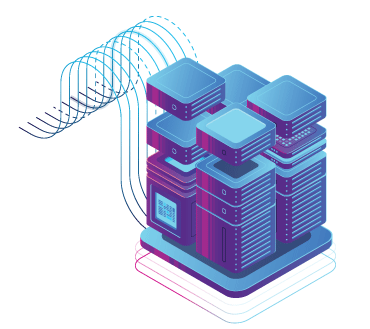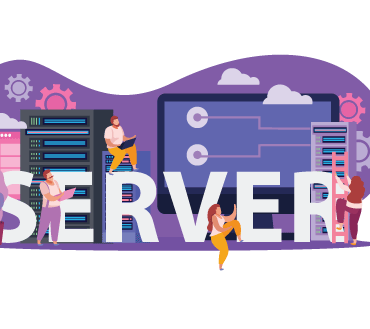Our Cloud Services
Unlock the true potential of your business with our comprehensive Cloud Computing and Server Deployment services. Whether you’re a small start-up or an established enterprise, our team of experts is here to guide you through every step of your digital journey.

Cloud Server Deployment

Additional Services
Why Choose Our Services?

Expert Guidance, Seamless Integration
Our experienced team of cloud specialists will work closely with you to understand your unique business needs and tailor cloud solutions that seamlessly integrate with your existing infrastructure. Enjoy a smooth transition to the cloud with minimal disruptions, maximizing efficiency and productivity.
Unmatched Reliability and Security
Rest easy knowing that your critical data and applications are hosted on secure servers, monitored 24/7, and backed by redundant systems. We prioritize your data’s privacy and implement cutting-edge security measures to safeguard your business from potential threats.


Flexible and Scalable Solutions
As your business grows, our cloud services grow with you. Scale your resources up or down on-demand, ensuring you only pay for what you use. Embrace flexibility and never worry about server capacity constraints again.
Why Opt for Cloud Computing?

Embrace the Future of Computing
Embracing cloud computing offers countless benefits, including unmatched scalability, enhanced data security, and reduced operational costs. By leveraging the power of the cloud, your business can stay agile, respond rapidly to changing demands, and focus on innovation.
Seamless Server Deployment and Management
Our team streamlines the server deployment process, making it hassle-free and quick. From initial setup to ongoing maintenance, we handle all aspects, ensuring your servers operate at peak performance, allowing you to focus on your core business.


Business Continuity and Disaster Recovery
Disasters can strike unexpectedly, but with our cloud solutions, your data remains safe and accessible even in the face of adversity. We implement robust disaster recovery strategies to ensure business continuity and minimal downtime.
Testimonials and Reviews
There are many variations of passages of Lorem Ipsum available, but the majority have suffered alteration in some form, by injected humour, or randomised words which don’t look even slightly believable.
Syed Sadat Ahmed
Sabbir Hossain Papon
Tapan Chowdhury
Md.Abdul Hamid
Md.Mahabubur Rahman
Transform Your Business Today!
Join the Cloud and Unleash Your Potential
Frequently Asked Questions
What is cloud computing?
Cloud computing refers to the delivery of various computing services, including servers, storage, databases, networking, software, and more, over the internet. Instead of owning and managing physical hardware and infrastructure, cloud computing allows users to access and utilize these resources on-demand from a provider’s data centers.
What are the benefits of using cloud computing?
Some key benefits of cloud computing include:
- Cost savings: Pay for resources as you use them, avoiding large upfront investments in hardware.
- Scalability: Easily scale resources up or down to meet changing needs.
- Flexibility: Access resources from anywhere with an internet connection.
- Automatic updates: Cloud providers handle software updates and maintenance.
- Reliability: Cloud providers offer high availability and redundancy.
What are the main service models in cloud computing?
The main service models are:
- Infrastructure as a Service (IaaS): Provides virtualized computing resources over the internet, such as virtual machines, storage, and networking.
- Platform as a Service (PaaS): Offers a platform and tools for developing, running, and managing applications without worrying about the underlying infrastructure.
- Software as a Service (SaaS): Delivers software applications over the internet, typically accessed through a web browser.
What is server deployment?
Server deployment refers to the process of setting up and configuring a server, making it ready for use. This involves installing the necessary operating system, applications, and configurations to enable the server to perform its intended tasks.
What are the different methods of server deployment?
There are several server deployment methods:
- Manual deployment: Involves setting up the server manually, step by step.
- Automated deployment: Utilizes scripts or configuration management tools to automate the server setup process.
- Image-based deployment: Involves creating a server image with all the necessary configurations and deploying it to multiple servers.
- Container-based deployment: Uses containerization technologies like Docker to package and deploy applications with their dependencies.
What is a virtual machine (VM) in cloud computing?
A virtual machine (VM) is a software emulation of a physical computer that runs an operating system and applications. Multiple VMs can run on a single physical server, allowing better utilization of hardware resources.
What is auto-scaling in cloud environments?
Auto-scaling is a feature that allows cloud resources to automatically adjust based on the current demand. When there is a surge in traffic or workload, auto-scaling provisions additional resources to handle the load. Similarly, it reduces resources during periods of low demand to optimize costs.
What are the security considerations for cloud and server deployment?
Some essential security considerations include:
- Data protection: Ensuring data is encrypted both in transit and at rest.
- Access controls: Implementing proper authentication and authorization mechanisms.
- Network security: Employing firewalls, VPNs, and intrusion detection/prevention systems.
- Regular updates: Keeping software, firmware, and operating systems up-to-date to address security vulnerabilities.
What are hybrid cloud environments?
A hybrid cloud environment is a combination of both public cloud services and private cloud infrastructure. This allows organizations to keep some data and applications in their private data centers while using public cloud resources for scalability and flexibility.
Can I migrate my existing applications to the cloud?
Yes, it is possible to migrate existing applications to the cloud. The process can vary based on the application’s complexity and the chosen cloud provider. Some applications may require adjustments to fully leverage cloud capabilities, while others can be moved with minimal changes. Proper planning and testing are crucial to ensure a smooth migration process.







